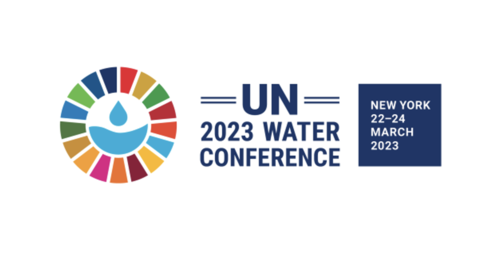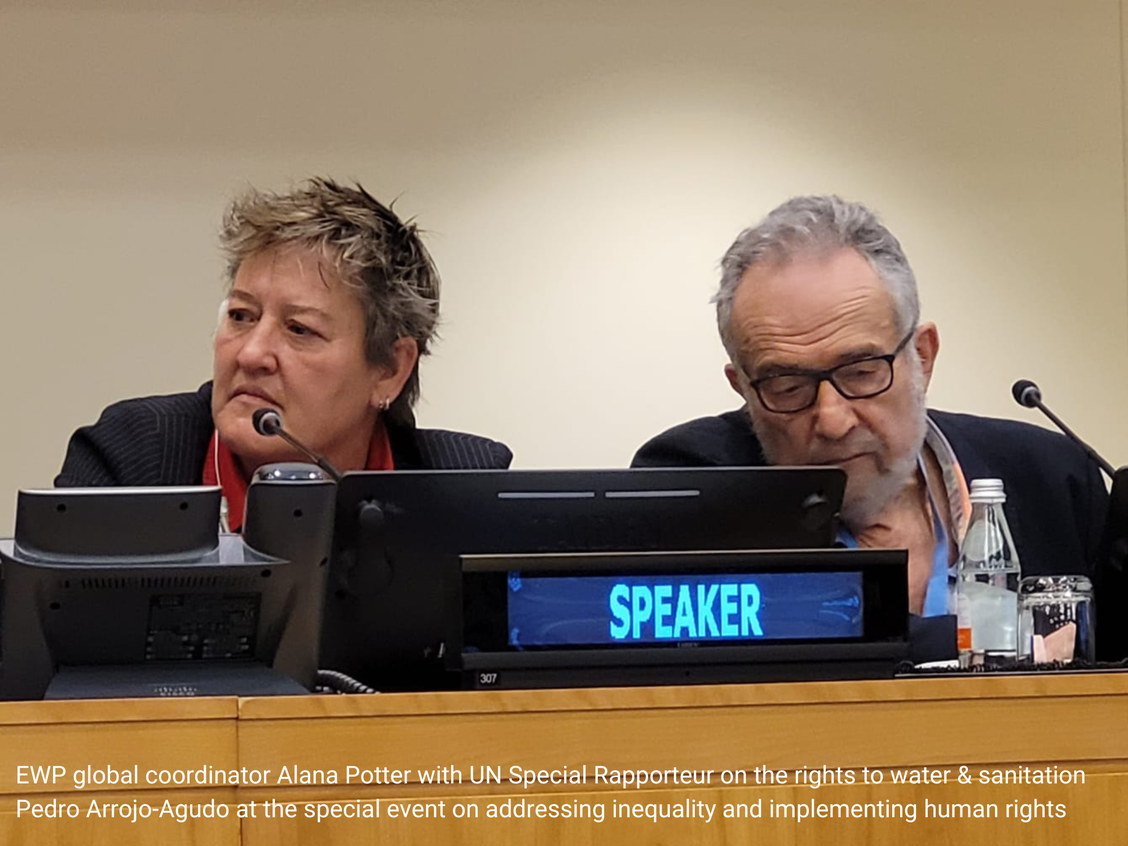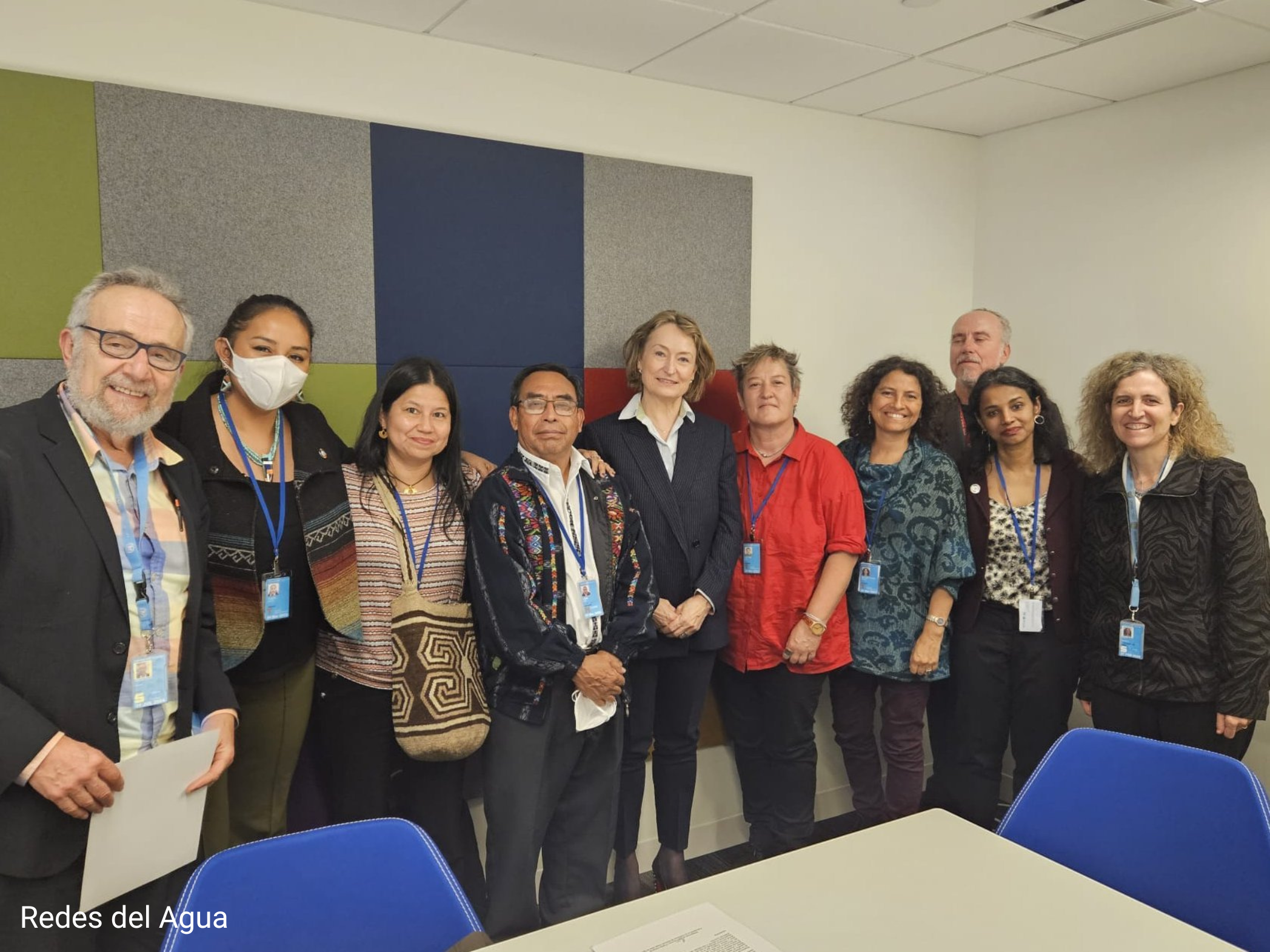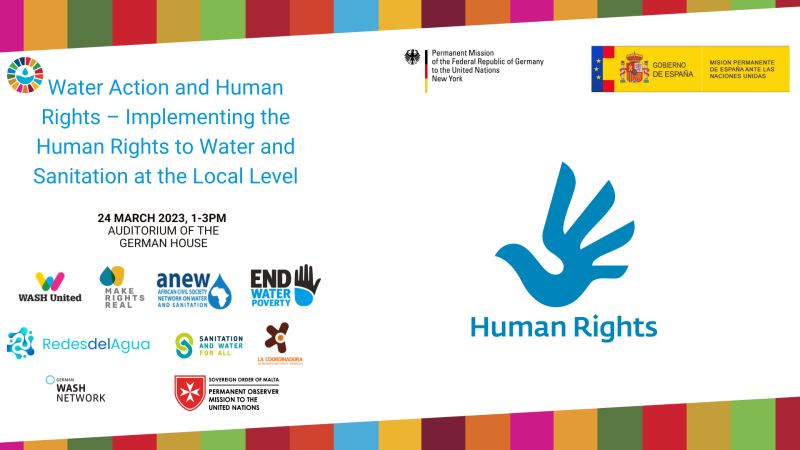From 22 to 24 March 2023, countries from across the world convened in New York for the UN 2023 Water Conference, where key discussions took place that will shape how countries manage water resources and systems for decades to come. End Water Poverty was involved in a number of key discussions, side events and rights-claiming initiatives around the conference. We emphasised the need to treat water and sanitation as human rights, and advocated for more inclusive international platforms to enable communities fighting for water and sanitation to participate directly in the debates that affect them.
 Some highlights of our involvement in the conference included the launch of the Water Justice Manifesto, the Hearing the Unheard official side event and grassroots water rights defenders meeting with Assistant Secretary General the Office of the High Commissioner of Human Rights Ilze Brands Kahris. Read more about these highlights and more below!
Some highlights of our involvement in the conference included the launch of the Water Justice Manifesto, the Hearing the Unheard official side event and grassroots water rights defenders meeting with Assistant Secretary General the Office of the High Commissioner of Human Rights Ilze Brands Kahris. Read more about these highlights and more below!
Reducing inequalities and implementing human rights

On 22 March 2023, EWP’s global coordinator Alana Potter participated in a panel discussion on reducing inequalities and implementing human rights through partnerships and collaboration at the conference. During the discussion, Alana Potter made a strong statement on the need to “decolonise aid” by “granting directly to community-based organisations” to build partnerships and to take action to claim their human rights to water and sanitation.
“If we really want to dismantle the architecture of inequality,” Potter said, “we need to get resources to communities, to people claiming their rights, to people on the frontline, to human rights defenders because that’s where the action is and that’s where the resources are most depleted.”
In a similar vein, the UN Special Rapporteur on the rights to water and sanitation Pedro Arrujo-Agudo underscored the importance of addressing power and information asymmetries in partnerships between international organisations and water defenders.
Water rights defenders meet with theAssistant Secretary-General of the OHCHR
On 23 March 2023, directly after the Hearing the Unheard side event, EWP’s global coordinator Alana Potter joined the UN Special Rapporteur on the rights to water and sanitation Pedro Arrujo-Agudo, representatives from indigenous peoples’ groups, FANMex, Redes del Agua, Blue Planet Project and Public Services International in a meeting with the Assistant Secretary-General for the Office of the High Commissioner for Human Rights (OHCHR) Ilze Brands Kahris. During the meeting, water rights defenders discussed the structural constraints faced by water defenders, indigenous and rural communities to make their voices heard in UN decision-making platforms.

End Water Poverty co-hosts events on human rights & financing accountability
 End Water Poverty also partnered with WASH United and Accountability for Water to host two other side events at the conference, namely:
End Water Poverty also partnered with WASH United and Accountability for Water to host two other side events at the conference, namely:
- Water Action and Human Rights – Implementing the Human Rights to Water and Sanitation at the Local Level and
- Where is the accountability? Financing accountability – civil society and systems strengthening
Some of the testimonies from #HearingTheUnheardHRWS were also screened at these events. Check out the video below!
Key takeaways
The official outcomes of the UN Water Conference constitute more than 700 voluntary commitments by States and stakeholders, comprising a #WaterActionAgenda, and a plan to establish a Special Envoy for water within the UN. The commitments are not binding, timebound or resourced and details around the establishment of the UN envoy are currently unclear. The proceedings of the conference have not yet been published. It is difficult to imagine how a set of disparate voluntary commitments will be transformative, and the task will go to civil society to gather, monitor, and hold accountability to the commitments.
As Water Witness said: “Trying to solve one of the greatest challenges facing humanity with voluntary commitments is like taking a knife to a gunfight – it simply isn’t good enough, and represents a betrayal of the world’s poor who bear the brunt of the water crisis. It’s a dismal outcome from such a historically significant event. Whilst the UN Water Conference wasn’t mandated to establish new binding agreements to hold governments, banks and multinationals to account on water, many of us were hoping that the concluding plenary would set us on a path towards getting those in place. It looks like the powerful beneficiaries of the status quo have won the day and will benefit from the status quo – of anarchic water use, water grabs, unchecked pollution and the massive levels of corruption in water projects – for a while longer.”
Civil society was undoubtedly a highlight at the conference. End Water Poverty and our partners elevated voices that often excluded from national and global decision-making at the conference, we amplified voices and demands of marginalised groups, and we spoke the truth to power.
In the UN Special Rapporteur’s words: “What is historic about this conference is that, for the first time, social movements, indigenous groups, human rights defenders and CSO networks are working together as rights holders, evidenced by the Water Justice Manifesto, endorsed by more than 500 groups.”
In the end, it is communities who persistently hold states accountable. It is their agency and actions that activate legal and policy frameworks and political promises. End Water Poverty remains committed to supporting communities to do this.